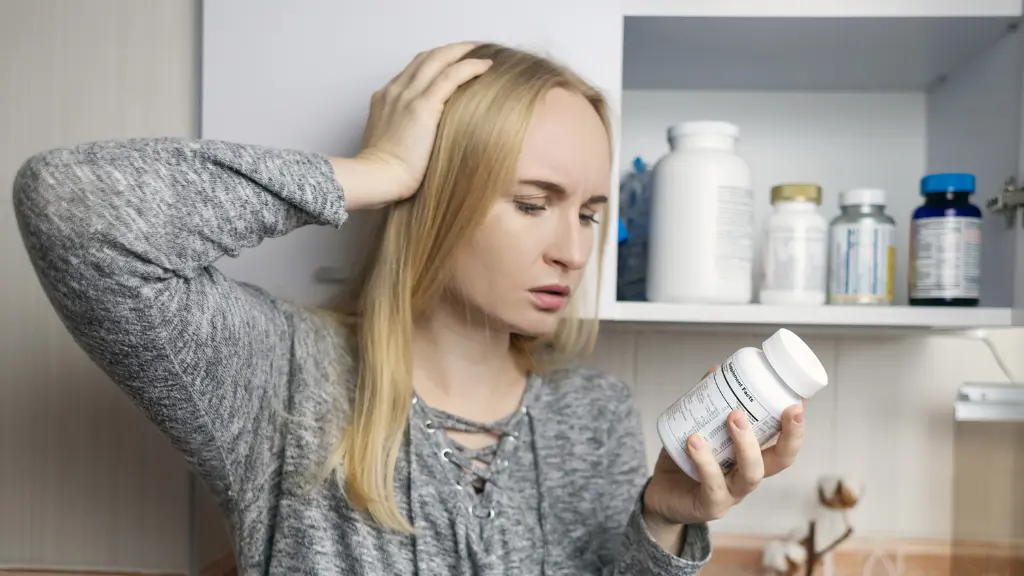Hair growth supplements are a booming market, promising fuller, thicker hair and faster growth for men and women alike. From biotin and collagen to multi-nutrient blends, they come in many forms, often making impressive claims. But do these supplements actually work?
In this article, we’ll dive into the science behind hair growth supplements, examine popular ingredients, and help you decide if they’re worth adding to your routine.
nYou May Also Like:12 Unforgettable Things to Do in Florida: A Sunshine State Bucket List
Understanding Hair Growth and Loss
Hair growth is a natural process influenced by genetics, nutrition, hormonal balance, age, and overall health. The hair growth cycle consists of three main stages:
- Anagen (Growth Phase): Lasts several years where hair grows actively.
- Catagen (Transition Phase): A short period where hair stops growing but remains attached to the follicle.
- Telogen (Resting Phase): Hair eventually sheds, making room for new growth.
When it comes to hair loss, many factors can contribute, including genetics (like male and female pattern baldness), nutrient deficiencies, hormonal changes, stress, and certain medical conditions. This is why people with different causes of hair loss may see varying levels of success with supplements.
Key Ingredients in Hair Growth Supplements
Hair growth supplements usually contain a blend of vitamins, minerals, and botanicals that are believed to support hair health. Here’s a look at the most common ingredients and their effects on hair growth:
1. Biotin (Vitamin B7)
Biotin is perhaps the most well-known supplement for hair growth. It’s a B-vitamin that plays a role in keratin production, a protein that makes up hair, skin, and nails. Studies have shown that biotin deficiency can lead to hair thinning and brittle nails, and supplementation may help improve hair strength and thickness.
- Effectiveness: For those with a biotin deficiency, supplementation can make a difference. However, for individuals with normal biotin levels, the benefits may be less pronounced.
2. Collagen
Collagen is a protein that supports skin elasticity and hair health. Collagen supplements provide amino acids that can aid in strengthening hair and may prevent follicle damage. Some users report shinier, stronger hair with regular collagen intake.
- Effectiveness: While it supports overall hair health, the direct impact on hair growth is still debated in scientific circles. Collagen can, however, support a healthier scalp environment.
3. Vitamin D
Vitamin D plays a role in hair follicle cycling. Deficiency in this vitamin has been linked to hair loss, as it can disrupt the hair’s natural growth cycle.
- Effectiveness: For individuals with low Vitamin D levels, supplementation can potentially support hair health and reduce hair shedding. However, for those who have sufficient levels, additional supplementation may not impact growth significantly.
4. Iron
Iron deficiency is a common cause of hair loss, especially in women. Iron supports red blood cell production, which is essential for delivering oxygen to hair follicles. Low iron levels can lead to hair thinning and even hair loss.
- Effectiveness: Those who are iron-deficient may experience a significant improvement in hair health with iron supplements. It’s important, however, to take iron supplements only if advised by a healthcare professional, as too much iron can be harmful.
5. Zinc
Zinc plays an essential role in hair tissue growth and repair. It also helps keep the oil glands around the follicles working correctly. Zinc deficiency has been linked to hair loss, so it’s a popular addition to hair supplements.
- Effectiveness: Zinc can support hair health, especially if a deficiency exists. However, overuse can disrupt other mineral balances in the body, so it’s best taken in moderation.
6. Botanical Extracts (Saw Palmetto, Ashwagandha)
Many hair growth supplements include botanical ingredients believed to help block DHT (dihydrotestosterone), a hormone linked to hair loss. Saw palmetto and ashwagandha are two commonly used extracts with potential anti-inflammatory and DHT-blocking properties.
- Effectiveness: Botanical extracts may support hair growth by balancing hormones and reducing scalp inflammation. However, more research is needed to determine their full effectiveness.
Do Hair Growth Supplements Work? The Science Says…
The effectiveness of hair growth supplements largely depends on individual circumstances, including age, gender, genetics, and underlying health conditions. Here’s a closer look at who may benefit most:
- Individuals with Nutrient Deficiencies: If you’re low on certain nutrients like biotin, iron, or Vitamin D, supplements can help restore levels, potentially improving hair growth and quality.
- People with Hormonal Imbalances: Hormonal changes, like those experienced during pregnancy or menopause, can lead to hair loss. Some supplements may help balance these changes, particularly if they include DHT-blocking ingredients.
- Stress-Induced Hair Loss: Chronic stress can lead to hair shedding. While supplements can’t eliminate stress, adaptogens like ashwagandha in some supplements may help manage stress levels.
For healthy individuals with no underlying deficiencies or health issues, the impact of hair supplements may be minimal. Most supplements work best when paired with a healthy diet and lifestyle.
Potential Side Effects of Hair Growth Supplements
While hair growth supplements are generally safe, they can have side effects, particularly when overused. Common side effects may include:
- Digestive issues (nausea, upset stomach)
- Skin reactions (rashes or acne from high doses of biotin)
- Potential hair loss from an imbalance of minerals like zinc and copper
It’s also essential to consult a healthcare provider before starting any supplement, especially if you’re taking medications or have underlying health conditions.
Tips for Healthy Hair Growth Beyond Supplements
Supplements can help, but they’re only part of the picture when it comes to healthy hair. Here are additional tips to support hair growth:
- Maintain a Balanced Diet: Focus on foods rich in protein, vitamins, and minerals, like leafy greens, eggs, nuts, and lean meats.
- Limit Heat Styling and Chemical Treatments: Excessive heat and chemicals can damage hair, making it prone to breakage.
- Practice Good Hair Care Habits: Regular trims, gentle brushing, and using sulfate-free shampoos can support hair health.
- Manage Stress: High stress can lead to hair loss, so incorporate relaxation techniques like meditation, yoga, or regular exercise into your routine.
Final Verdict: Are Hair Growth Supplements Worth It?
For some, hair growth supplements can make a difference, especially if they have nutrient deficiencies or specific hair health needs. However, for those without deficiencies, supplements may have limited effectiveness. The best approach to healthy hair growth combines a balanced diet, proper hair care, and managing underlying health issues.
Hair growth supplements are not a miracle solution, but they can be a valuable addition to a holistic approach to hair health.










